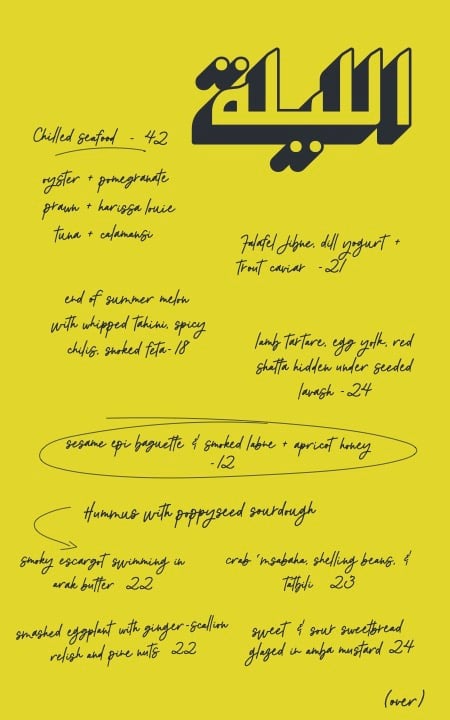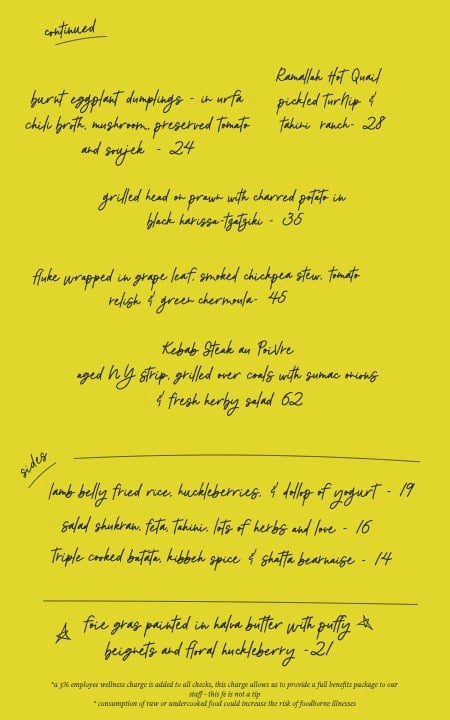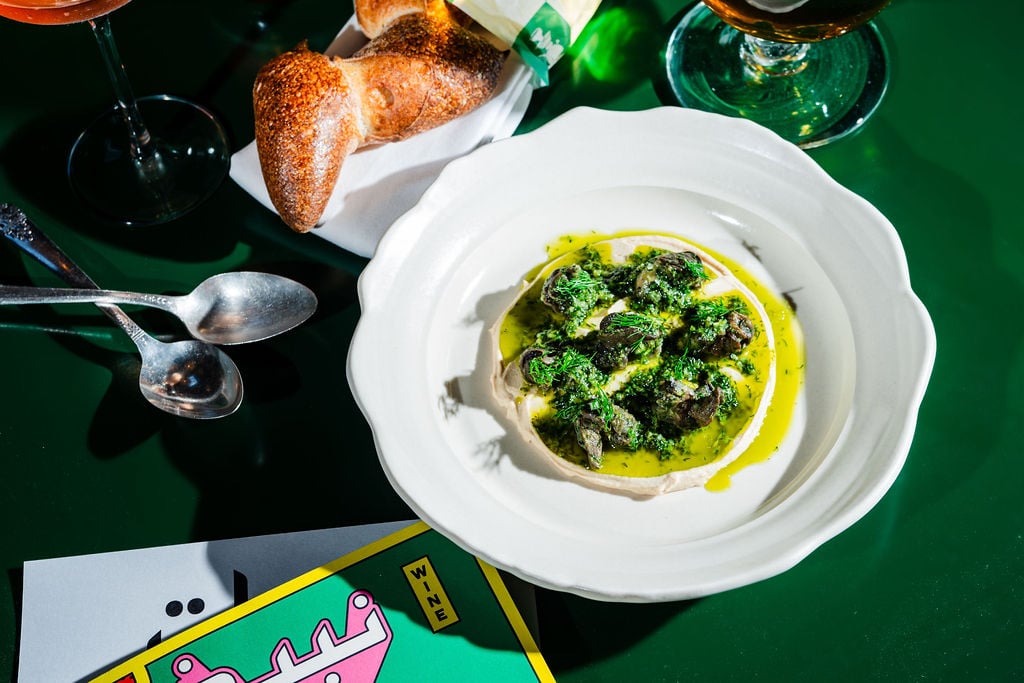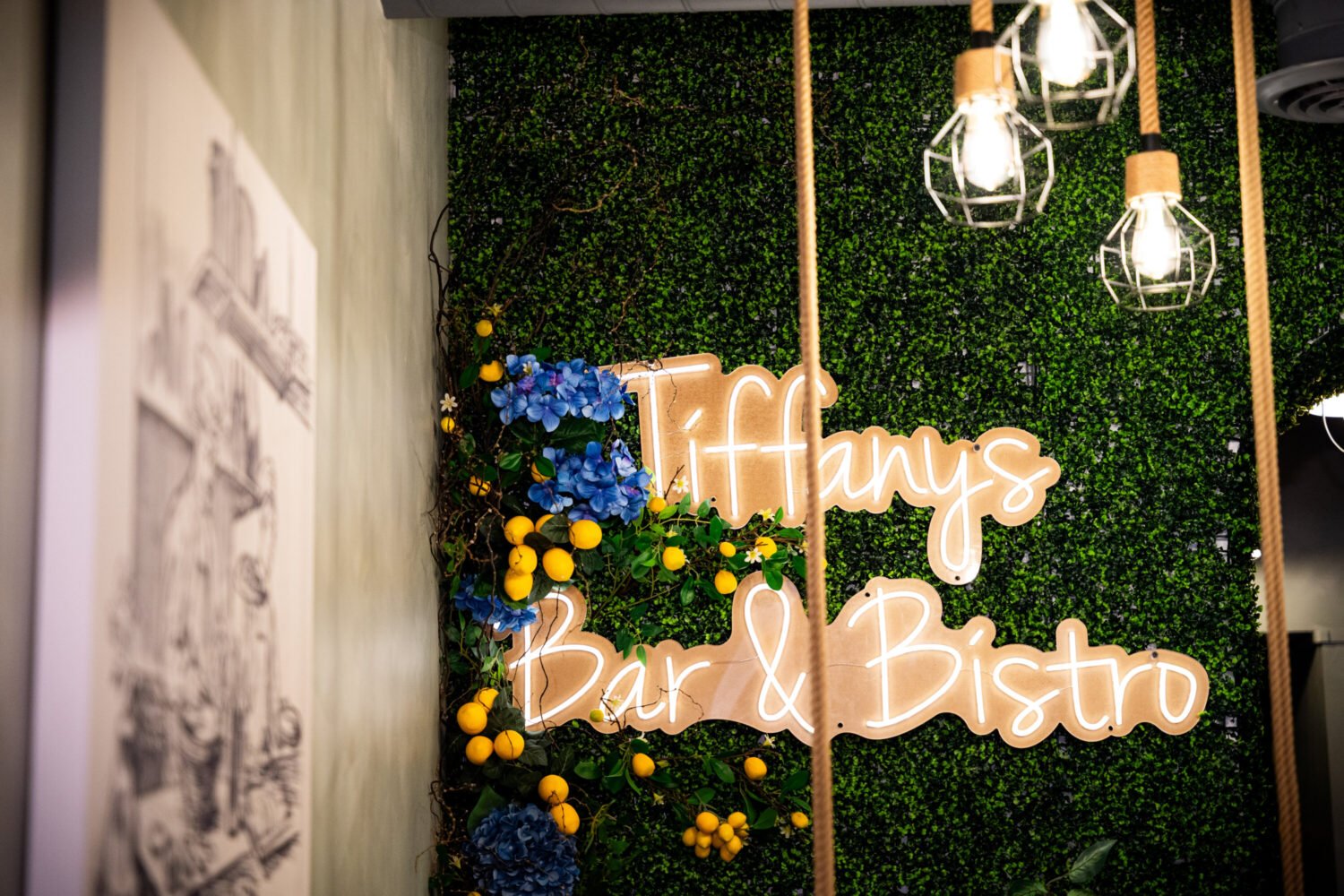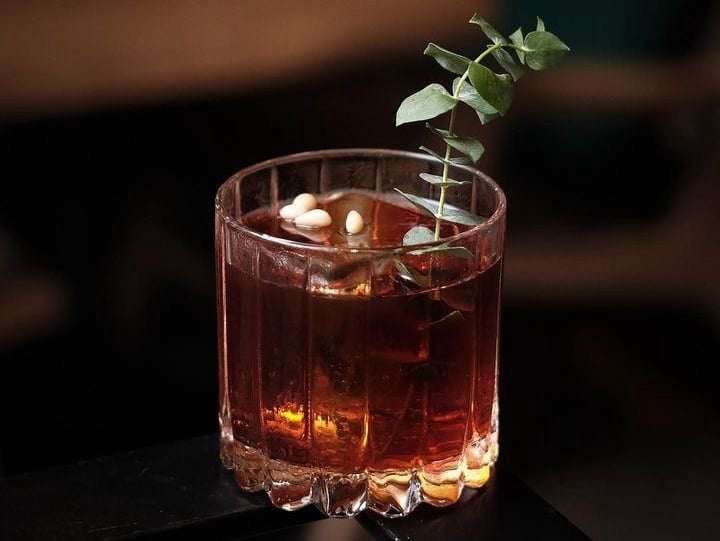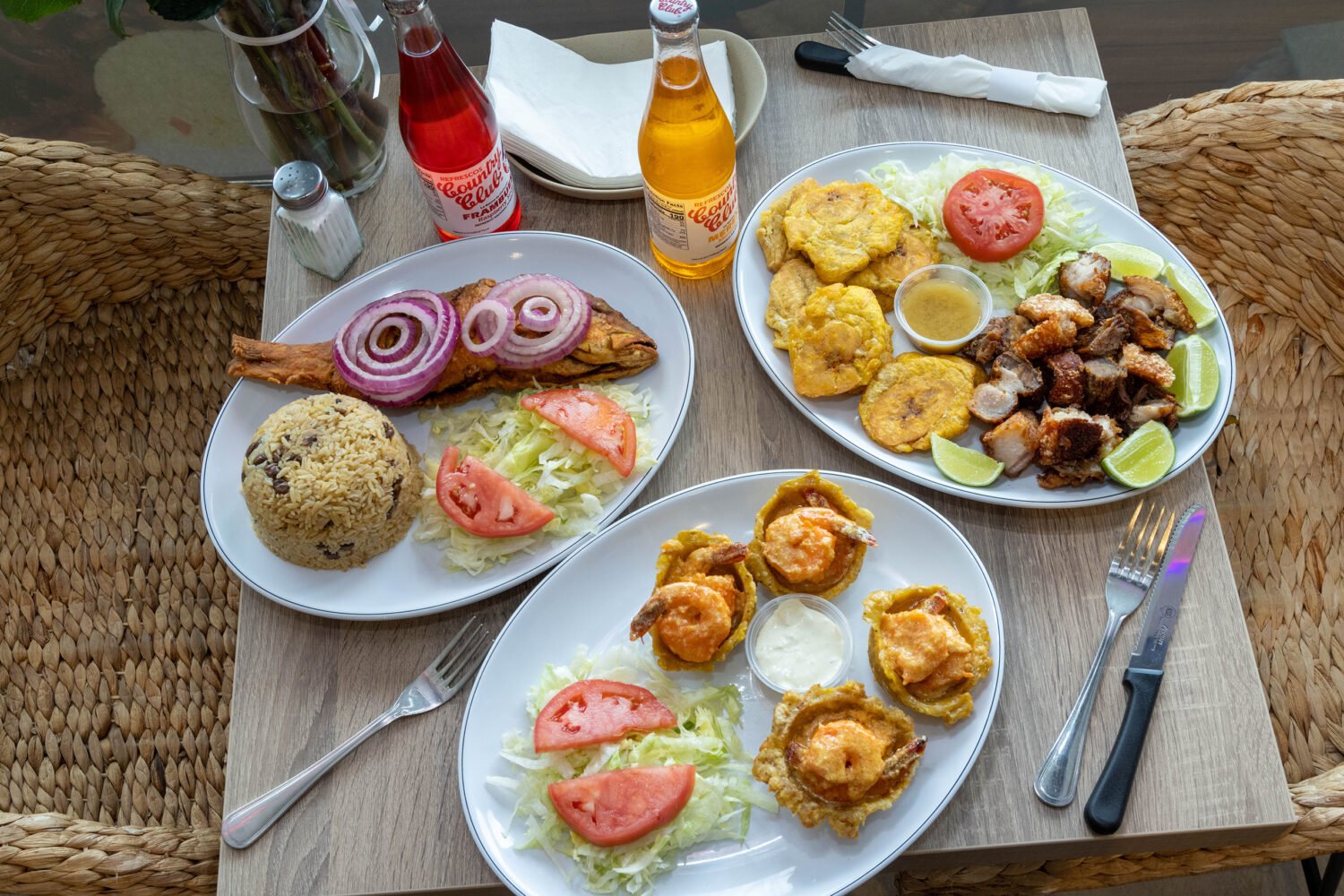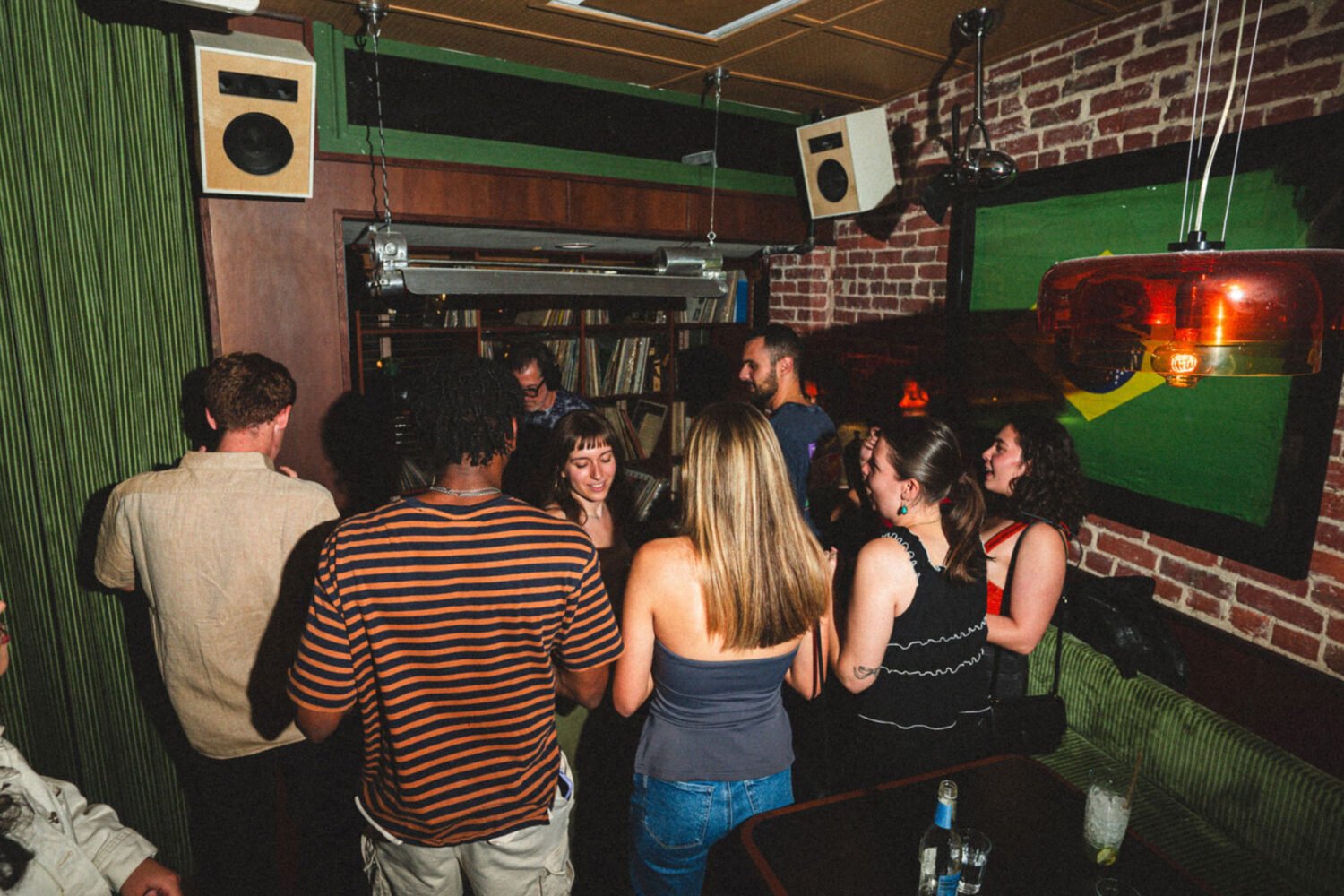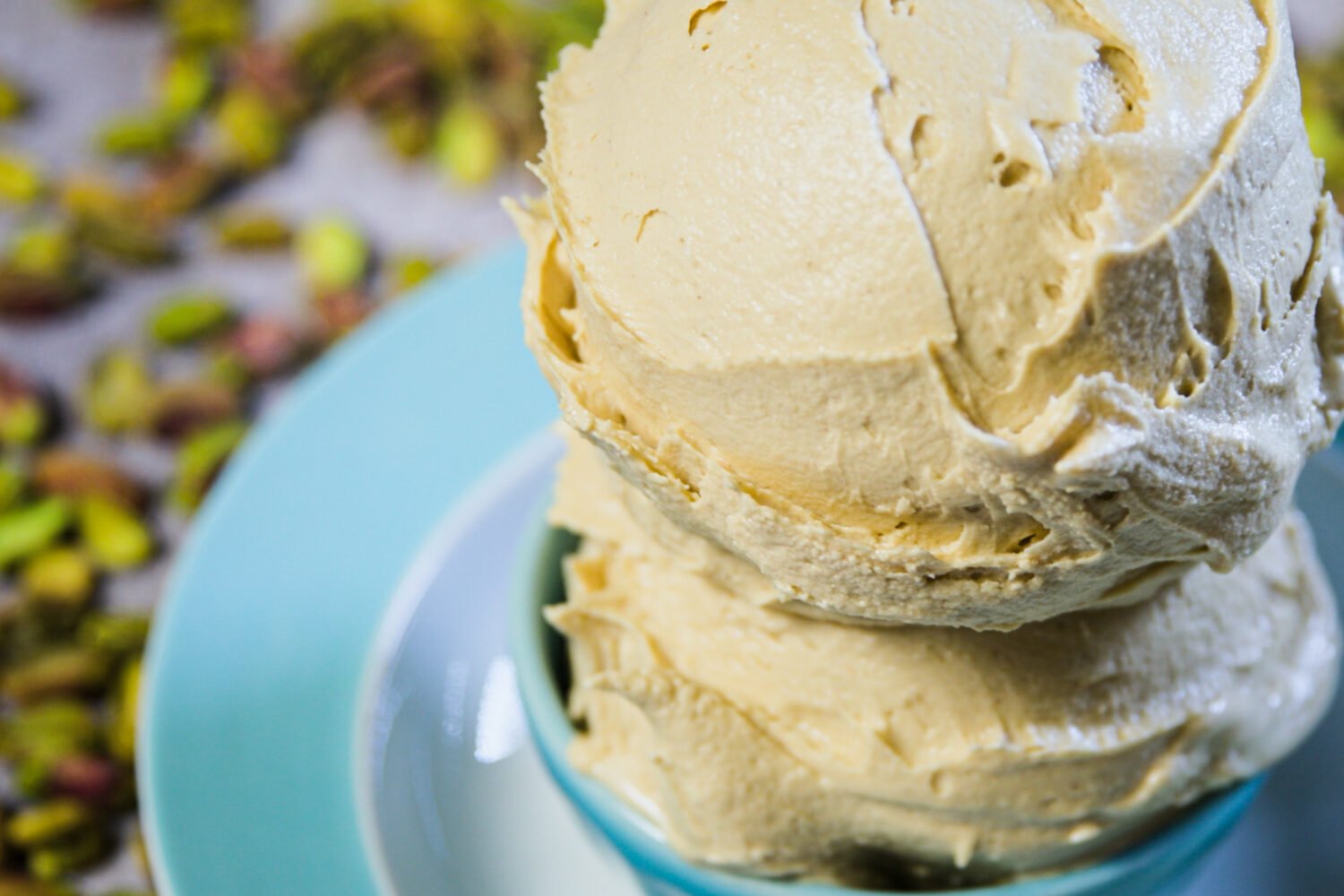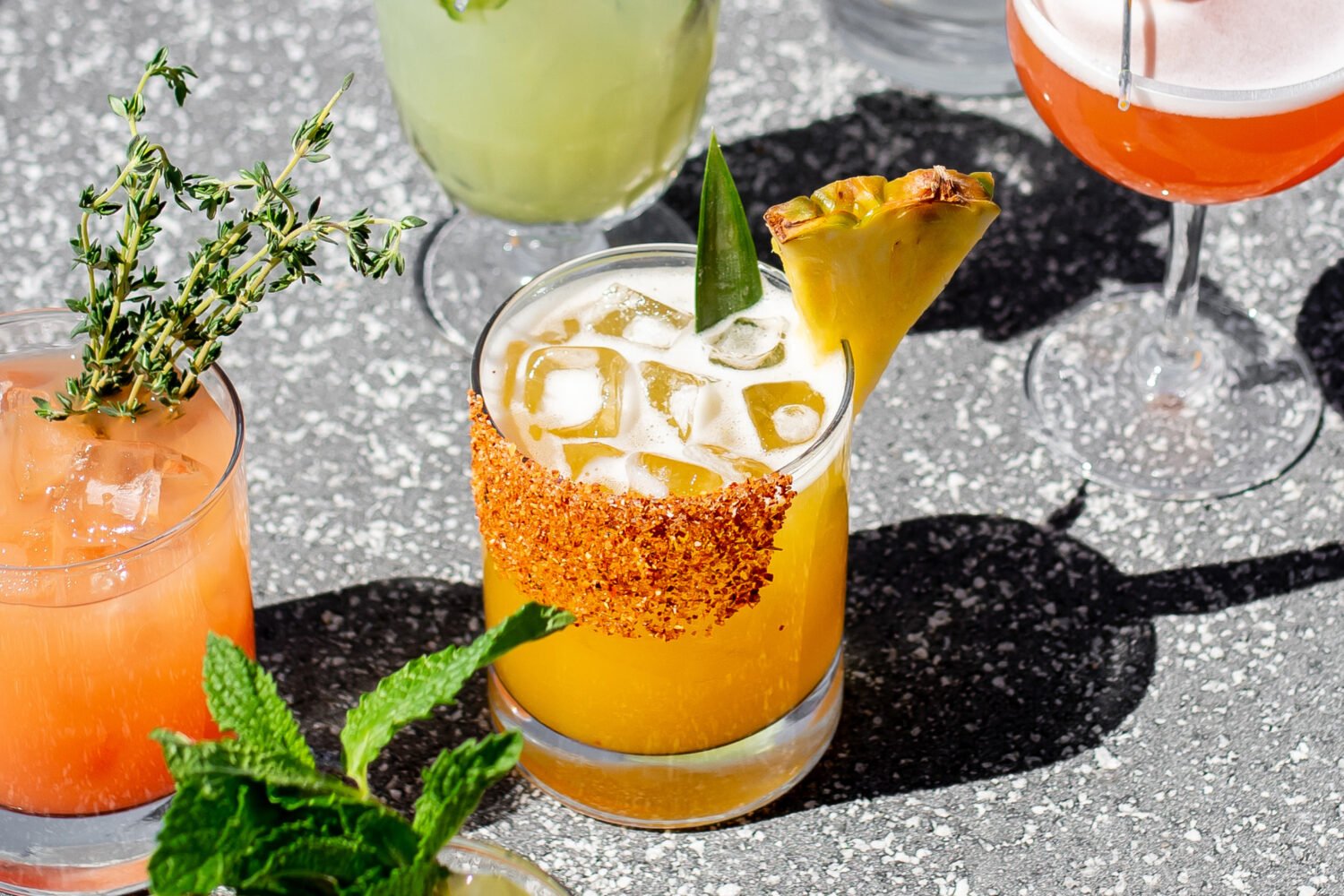About Restaurant Openings Around DC
A guide to the newest places to eat and drink.
La’ Shukran. 417 Morse St., NE.
Chef Michael Rafidi always wanted to do French bistro. Long before his hit Levantine restaurant Albi and its casual cafe spinoff Yellow, he had cooked French food at Michael Mina’s RN74 in San Francisco. The idea evolved into a French bar with Middle Eastern flavors, which evolved into a Middle Eastern bistro and bar with French vibes. Now, it’s all finally come together at La’ Shukran, one of the most anticipated openings of the year. It debuts Thursday, September 19 in Union Market.
“There’s no comparison to Albi or Yellow. There’s really no comparison to anything, honestly,” Rafidi says. “We’re trying to bring a bunch of different worlds together. It’s a bar. It’s a bistro. I really don’t want to call it a restaurant because we want to have that late-night vibe to it.” Similarly, the name La’ Shukran, which means “No thank you,” is a bit open-ended—as La’ Shukran’s website describes, it can be a way to shake off a persistent vendor in the Arab Souk or a respectful way to say ‘you’re welcome.’

Rafidi has teamed up with Radovan Jankovic, an owner in the just-opened Brazilian bar Cana in Adams Morgan as well as South American-inspired Mercy Me in the West End. Both worked at Bourbon Steak early in their careers and later at Spanish restaurant Arroz, where Rafidi was the chef and Radovan consulted on the bar.
The concise food menu draws from Rafidi’s French training, Palestinian roots, and flavors and ingredients from throughout the Levant. It’s meant to be updated daily with limited quantities of some dishes. Look for several hummus dishes—all served with a poppyseed sourdough batard rather than traditional pita. The hummus that really encapsulates La’ Shukran is topped with smoky escargots in an arak butter, while other versions come with crab and tahini or sweet-and-sour sweetbreads glazed in amba (pickled mango) mustard.
A lamb tartare with bulgur and an egg yolk lands somewhere between Lebanese kibbeh nayeh and French steak tartare, and is served with seeded lavash. Soujek (sausage) dumplings are fried and steamed like potstickers and paired with mushrooms and preserved tomatoes in a urfa-harissa broth. “It’s kind of a take on a classic Armenian or Turkish dish, depending on who you talk to, called manti,” Rafidi explains.
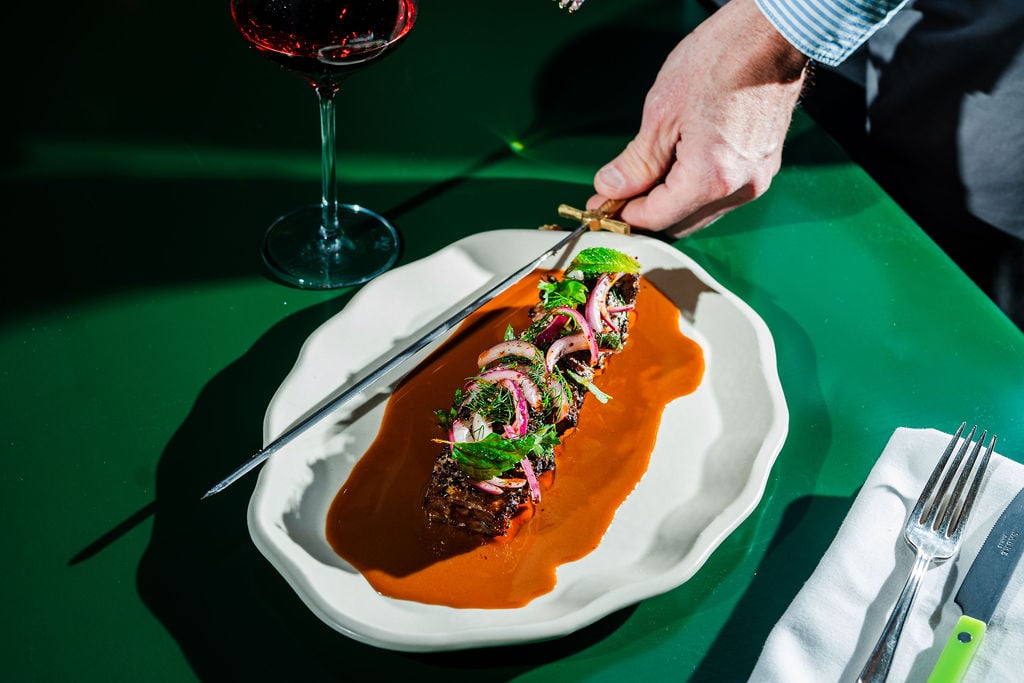
A steak au poivre is marinated in yogurt like a traditional kebab and flavored with Middle Eastern spices plus aleppo and urfa chilies. It’s served with an onion salad like you would find with a shawarma plus an au poivre sauce, but Rafidi swaps in smoked feta for blue cheese. If you stick around past 10 PM, the kitchen will also serve up 15 to 20 lamb-beef kebab burgers dubbed the Big Jibne, or Big Cheese, on a sesame bun.
While La’ Shakuran will no doubt be a foodie destination, Rafidi—named Outstanding Chef in this year’s James Beard Awards—says he wants the kitchen and the bar to be on equal levels. “Sometimes it becomes more of a restaurant because I’m involved, but I really want it to be more of a bar,” he says. La’ Shukran also has a collection of vintage vinyl drawing from Egypt, Sudan, Turkey, and throughout the Arabic-speaking world. The bar will host DJs a few times a month.
On the drink front, Jankovic has delved deep into arak, with the anise spirit featured heavily on the cocktail list. “Warda,” meaning rose in Arabic, is a cross between a pina colada and a caipirinha—but with rose water and arak. Another arak cocktail dubbed “Zanjabeel,” meaning ginger, is similar to a Penicillin, incorporating Scotch (which is very popular throughout the Middle East), pineapple, and za’atar.
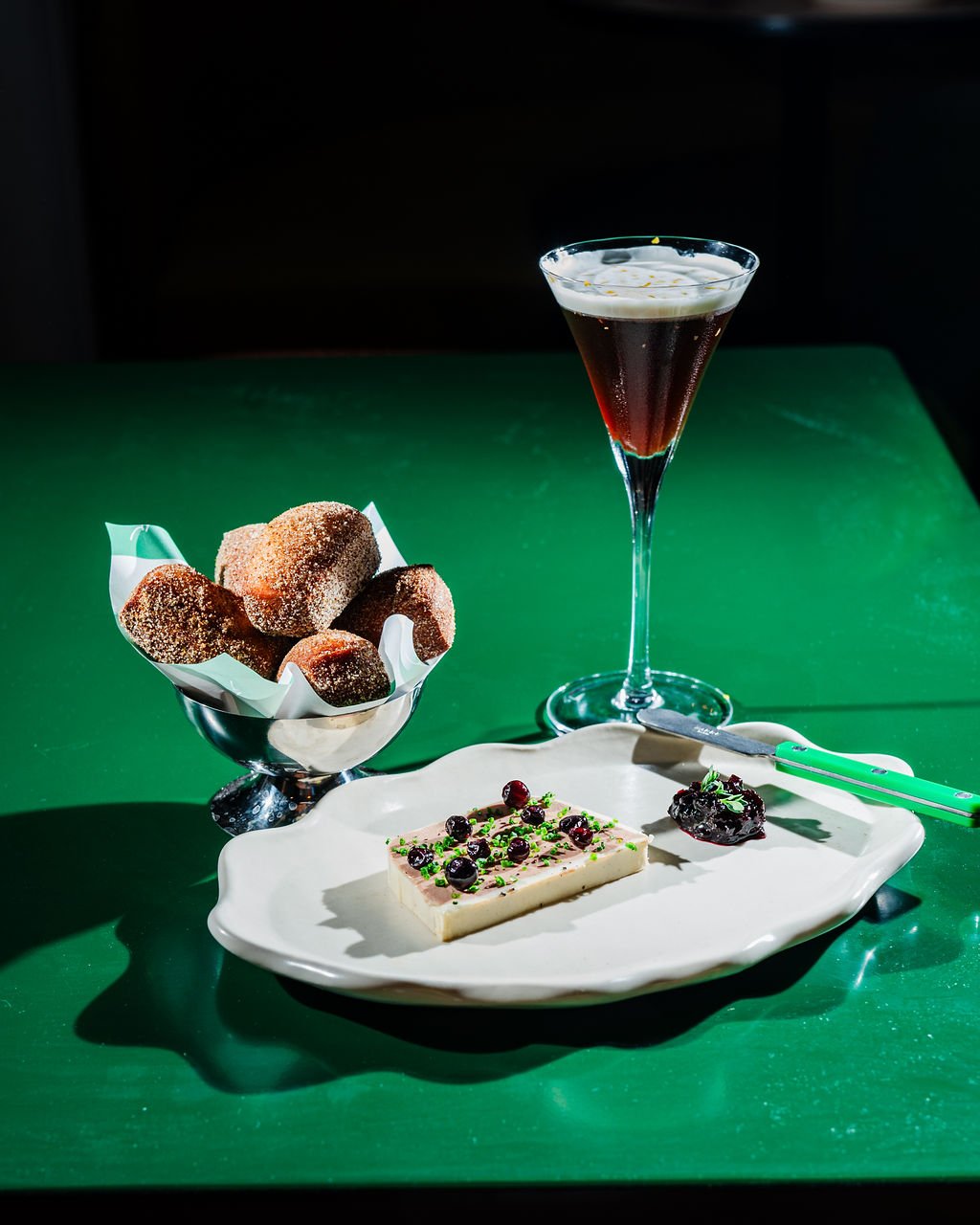
The rest of the cocktail menu (including non-alcoholic options) incorporates ingredients from sesame to sumac. Of particular note is the Bedouin Coffee cocktail, which Jankovic says was inspired by a cardamom-heavy coffee he sipped at a roadside cafe in the Jordanian desert. Jankovic—who was at the forefront of DC’s espresso martini trend in his previous role at Residents Cafe & Bar—uses smoky mezcal to nod to the Bedouins’ open-fire cooking, plus cold brew, carob molasses, an orange-y French liqueur, and a cardamom-infused cream. He says it pairs particularly well with Rafidi’s foie gras, which is painted with halva butter and served with ras el hanout-spiced beignets and a huckleberry jam.
Every day, the pastry team, headed by Yellow’s Alicia Wang, will make a large kanafe, a syrup-drenched pastry with crushed pistachios. Try it with a coffee, which Rafidi describes as “French press meets Turkish or Arabic coffee.”
The wine list, designed to look like a seven-inch record, draws from the Arabic world where it can and focuses generally on natural wines with “a strong preference for indigenous grape varieties,” says wine director and director of operations Will Simons. You’ll find skin-contact bottles from the mountains of Lebanon alongside an overlooked pinot rosé alongside a riesling blend from the Shenadoah Valley. “One thing that’s kind of universal throughout the wines that we have is that there’s no added yeasts. It’s all spontaneous fermentation or very, very, very, very close,” Simons says.
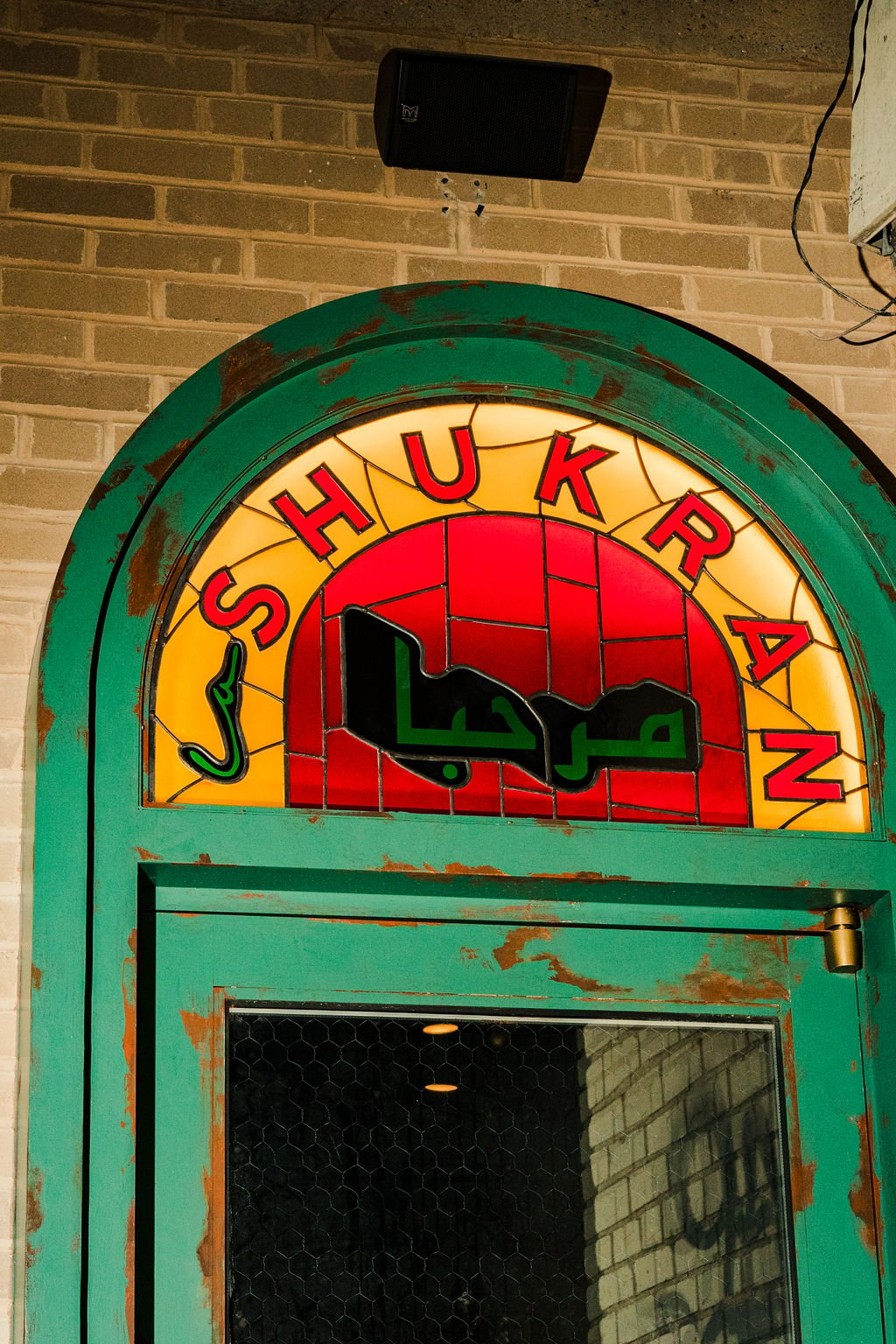
The bistro-bar is located in a long-abandoned meat market building above Yellow, but it’s only accessible from a hidden door in a back alley. The 53-seat space, which includes a 13-seat bar, has a retro vibe with fringed lamps, splashes of green and yellow, and a bright pink rug made in Morocco. A rooftop patio overlooking the Union Market area will offer an additional 40-something seats. “We wanted plenty of lush textures and colors,” Rafidi says. “Why is it pink and green and this and that? I want it to be like, ‘This is weird.'”
While most of the dining room will be for reservations, walk-ins are welcome at the bar, and eventually the patio. Reservations for the week will be released every Monday. Opening week tables were booked up in 40 minutes.
